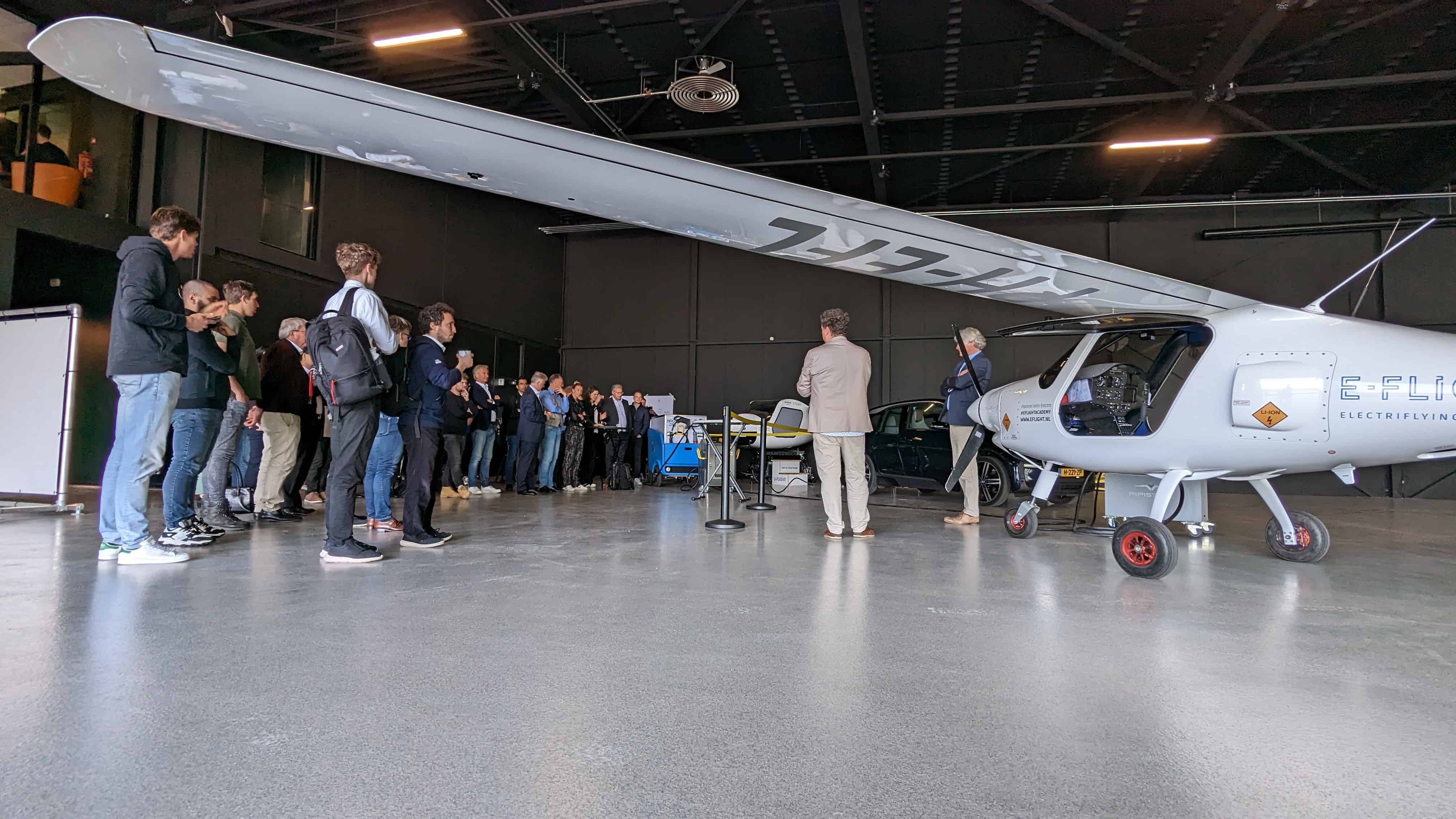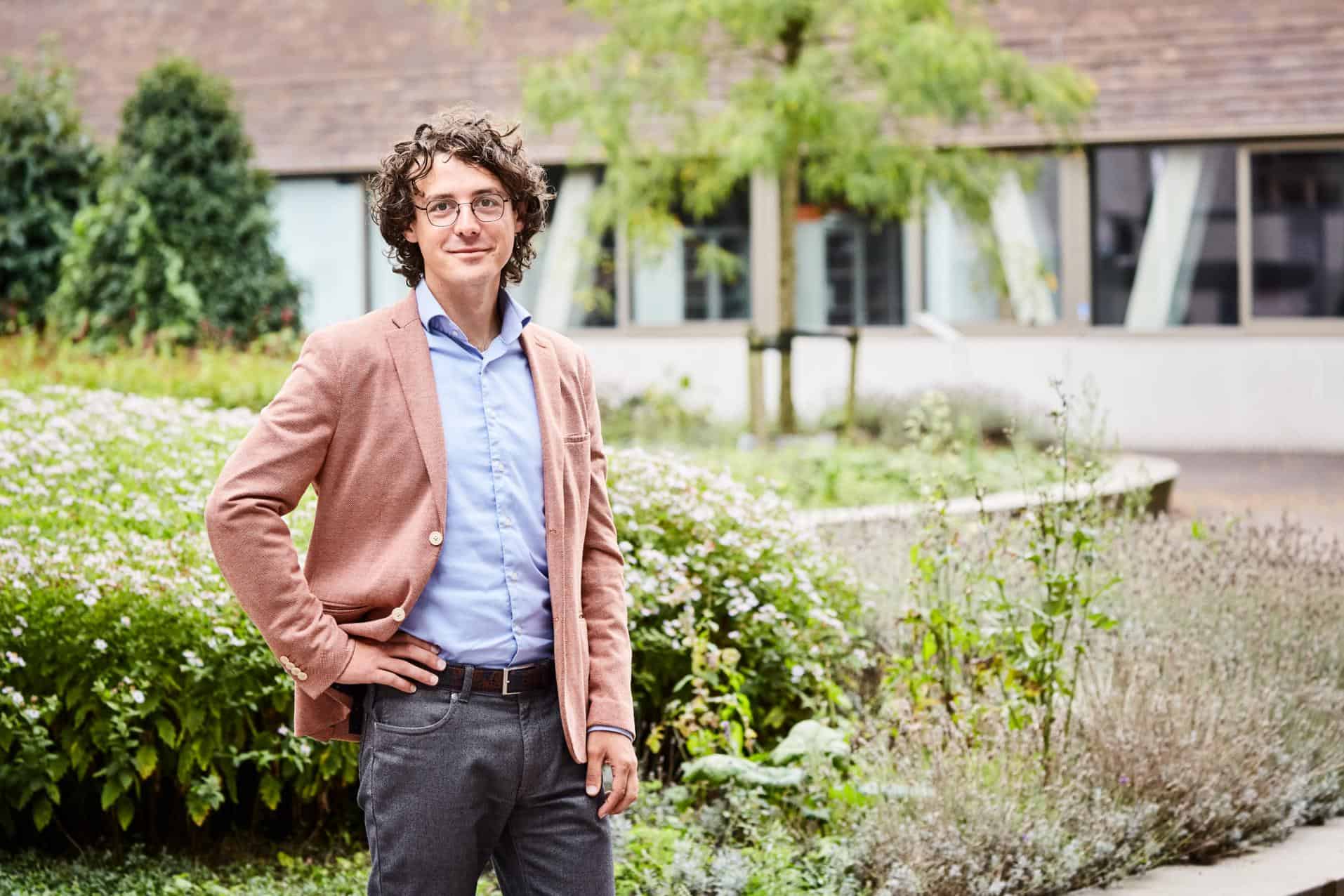
It is a turbulent and unpredictable time for many innovative companies in the Netherlands. The consequences of the war in Ukraine are hard to gauge. Innovation Origins spoke with DAF trucks about the e-truck market, with ELECTRON Aviation about electric aviation and with LioniX International about the photonic chip market. Could the serious conflict also lead to something positive and be a wake-up call for accelerated innovation in these specific sectors?
The conflict between Europe and Russia is having a profound impact on major European truck manufacturers, including DAF. As of right now, the company is no longer supplying trucks and parts to Russia, which is primarily due to European and American sanctions. Last year, the Dutch company still sold approximately 60,000 trucks, 2,000 of which were to Russia. This year, notably due to global tensions, it is difficult to estimate how many will be sold.

E-trucks
DAF is not just one of Europe’s largest truck manufacturers, but also a leading supplier of electric trucks. So, will the tensions between Russia and Europe, and our dependence on Russian gas and oil, drive sales up for more e-trucks? Rutger Kerstiens, spokesperson for DAF, does not expect a sudden stampede. “I don’t see the market suddenly taking a radical turn, no.”
“If you are a haulier and you are planning to drive electric trucks, then you have to adjust your business operations to that. That is not so easy to arrange,” he explains. “For example, you have to take into account that your trucks have to be charged regularly. You have to adapt your routes to that. This makes it more complicated for a haulier to use such a truck. Electric trucks are also a lot pricier than regular trucks. Plus the installation of their own fast chargers is not something that can be done overnight. Consequently, a transition like this is by no means straightforward.”
DAF ready for the changeover
Even before the war, Kerstiens saw the willingness of hauliers to operate cleaner fleets. “There are only a few who say: I’ll just keep doing what I’m doing. The transport sector is eager to become more sustainable. Don’t forget that hauliers in more and more inner cities have to deal with zero emission zones and that their customers are also asking for sustainable transport. So, that shift was already underway.”
But if Europe does go full steam ahead with an accelerated changeover to electric transport: “Then we at DAF will be ready. And then we will also advise hauliers on how to adapt their operations to electric trucks to ensure a successful transition. We look at the whole story: from the truck, to the planning of routes, and the charging infrastructure that is needed.”
ELECTRON aviation: ‘War has a silver lining for electric aviation’
ELECTRON aviation is building a fleet of air taxis that can accommodate four passengers. If everything goes according to plan, passengers will be able to take an air taxi from the company to and from Groningen Airport Eelde as early as 2026. The company is a pioneer in the field of sustainable flight. It is one of the first parties to develop aircraft designed to enable e-flights for passengers.

CEO of the company Josef Mouris is incredibly shaken by Russia’s attack on Ukraine. The war has hardly had any real impact on his business operations, although the concentration he needs for it sometimes suffers. “Then I often immediately start thinking in practical terms: ‘What can I do to help?’ It’s a pity we don’t actually have aircraft ready yet. Otherwise I would have said that we are going to send our planes to the border area and evacuate the people over there. There is also an extraordinary amount of talent running around in both Russia and Ukraine as far as aircraft construction is concerned. Think about the Ukrainian cargo plane the Antonov An-225 Mriya; this is the largest and heaviest plane in the world. Incidentally, this plane was destroyed during the fighting. All that talent from Russia and Ukraine is being sidelined during this serious conflict.”
Gaining Independence
When it comes to oil and gas, we in Europe are dependent on Russia. Will that still be the case once the war is over? “For the time being, we have to focus primarily on the suffering the war is causing,” Mouris believes. “But I do envisage that the war could have a kind of silver lining for aviation, among other things. After all, the conflict can also highlight the need for us to be more independent, and that can accelerate the energy transition.” In this regard, Mouris is surprisingly more optimistic about aviation than about the approach to cars on roads.
“Electric aviation has the advantage that an airplane makes a lot of passenger miles and does not need much infrastructure. Consequently, you can make a lot of impact. Moreover, airports are ideally suited for generating a lot of solar energy to use immediately. This kind of solution can be rolled out fairly quickly, faster than Tesla is able to turn road traffic green.”
But it should not be taken too lightly either. “There really still are plenty of improvements to be made in the greening of aviation. For example, there are still huge differences between the levies aviation pays for kerosene and CO2 emissions compared to road traffic and industry. That’s approximately four to ten times less. So, the CO2 that is currently being emitted is not taxed, or hardly taxed at all, which scarcely provides any financial motivation to do things differently. If we really want to accelerate the greening of Europe, we’ve got to start tackling aviation in a decisive way. And not as late as 2050.”
Also read: By air taxi from Dutch city of Groningen to London: ‘We’ll be ready in 2026’
LioniX: ‘Photonics, key role in making Europe more sustainable’

LioniX International, a company based in the Dutch city of Enschede that focuses on the manufacture of photonic chips, has not yet been directly affected by the war in Ukraine. “But that will no doubt change in the near future,” says René Heideman, CTO of the company. “The conflict is going to have repercussions around the world and will also affect us and other chip suppliers.”
As it happens, LioniX itself imports various basic raw materials and electronics components from abroad. “These were already difficult to obtain due to corona. Importing these products will also become even more difficult due to the war. That’s because transport flows are bound to take another hit, I expect.”
‘Don’t forget about the photonics industry’

“If Europe wants to accelerate its energy transition and become independent from Russian gas, the photonics industry should definitely not be forgotten,” explains Douwe Geuzebroek, VP Marketing & Sales at LioniX. Because they are ‘tucked away’, the role that chips play is not initially obvious when trying to make a country more sustainable. In fact, photonic chips run on light instead of electricity, which means they are much more economical and efficient. “Photonics is incredibly important in the energy transition. If we make sure that data centers and systems that run in the background consume less energy, then the energy transition will receive a huge boost.”
“This transition is also already underway and noticeable in photonics,” adds Heideman. “It would be a relief if this terrible war at least brings about the acceleration of the sustainability of Europe.”







